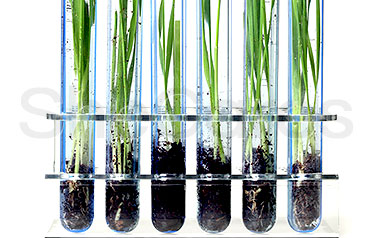Bioidentical hormones seem to be no safer than traditional hormone replacement therapy, says a new study. According to an article published in the Medical Journal of Australia, biodientical hormones have been linked with an increased risk for endometrial cancer, making this alternative treatment just as potentially dangerous as its more traditional counterpart.
About bioidentical hormones
Bioidentical hormones are marketed as safe, “all-natural” hormones that are not taken at a one-size-fits-all dosage, like standard HRT, but are tailor-compounded to address individual hormonal needs. Ostensibly in order to give hormones at the lowest levels possible, compounders of bioidentical hormones determine each patient's hormonal levels via salivary testing, and then adapt the therapy based on the results of the test.
Risks of bioidentical hormones
Health care providers have long remained wary of this ever more popular alternative treatment, noting that salivary hormonal tests are by no means exact gauges of a woman's hormonal levels. The “normal” hormonal levels for a postmenopausal woman have not even been identified, so such a test has limited pertinence, anyway.
Furthermore, there is no verification that hormones from so called “natural” sources or that have been “custom compounded” are more healthful than or even as helpful as conventional HRT. The fact that the FDA (the governmental Food and Drug Administration) does not supervise or direct the production of biodidentical hormones is another notable fear of medical professionals.
Now, real data that justifies years' worth of admonishments has just been published: a report in the Medical Journal of Australia describes three different cases of postmenopausal women (54, 59, and 71 years of age, respectively) on bioidentical hormones who were subsequently diagnosed with endometrial cancer.
Eden, Hacker, and Fortune, the authors of this article, put forth a panoply of potential health issues triggered by bioidentical hormones. First of all, the compounding of bioidentical hormones is not controlled by any governing body, and the administration routes (like tablets, lozenges, or creams administered to the skin) have not been evaluated for efficiency.
The medical investigators suggest that the most important factor, however, may be the practice of compounding the bioidentical hormones based on the results of salivary hormonal tests, which are not efficient measurements of hormonal levels. Due to this, the compounders may fail to add satisfactory levels of progesterone to the compound, which is crucial to protect against the cancer-stimulating effects of estrogen alone. Alternatively, the administration routes may allow for the absorption of only estrogen, while progesterone was less completely absorbed.
Given the serious concerns as to the safety of bioidentical hormones, menopausal women currently taking bioidentical hormones are encouraged both to stop use and to visit their doctor for a medical screening.


